-
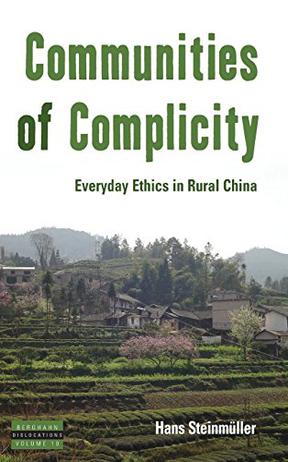
Communities of Complicity
Everyday life in contemporary rural China is characterized by an increased sense of moral challenge and uncertainty. Ordinary people often find themselves caught between the moral frameworks of capitalism, Maoism and the Chinese tradition. This ethnographic study of the village of Zhongba (in Hubei Province, central China) is an attempt to grasp the ethical reflexivity of everyday life in rural China. Drawing on descriptions of village life, interspersed with targeted theoretical analyses, the author examines how ordinary people construct their own senses of their lives and their futures in everyday activities: building houses, working, celebrating marriages and funerals, gambling and dealing with local government. The villagers confront moral uncertainty; they creatively harmonize public discourse and local practice; and sometimes they resolve incoherence and unease through the use of irony. In so doing, they perform everyday ethics and re-create transient moral communities at a time of massive social dislocation. -
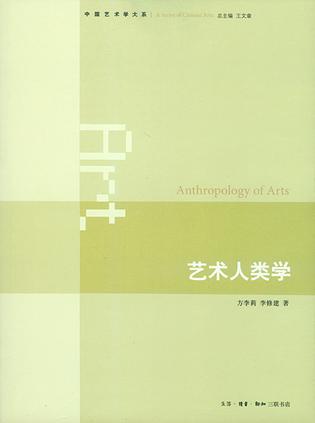
艺术人类学
本书对艺术人类学的基本概念,理论方法,发展沿革,研究状态以及研究的价值意义等方面进行了梳理。 作者除了对艺术人类学理论概念进行诠释,对于这门学科的发展也做了详实的介绍,从“古典时期”的进化论学派、传播学派,到“现代时期”的代表人物格尔茨、特纳等,都做了介绍和评述。同时,对中国艺术人类学的发生发展过程,以及研究现状,也做了客观描述。此外,作者还以自己的田野调查报告为例,展示了艺术人类学的研究视角与门径。本书的出版填补了我国在艺术人类学这一年轻学科定位方面的空白。 -
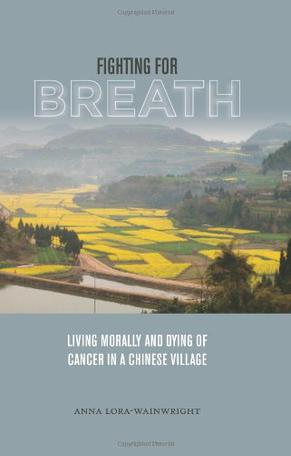
Fighting for Breath
Numerous reports of “cancer villages” have appeared in the past decade in both Chinese and Western media, highlighting the downside of China’s economic development. Less generally known is how people experience and understand cancer in areas where there is no agreement on its cause. Who or what do they blame? How do they cope with its onset? Fighting for Breath is the first ethnography to offer a bottom-up account of how rural families strive to make sense of cancer and care for sufferers. It addresses crucial areas of concern such as health, development, morality, and social change in an effort to understand what is at stake in the contemporary Chinese countryside. Encounters with cancer are instances in which social and moral fault lines may become visible. Anna Lora-Wainwright combines powerful narratives and critical engagement with an array of scholarly debates in sociocultural and medical anthropology and in the anthropology of China. The result is a moving exploration of the social inequities endemic to post-1949 China and the enduring rural-urban divide that continues to challenge social justice in the People’s Republic. In-depth case studies present villagers’ “fight for breath” as both a physical and social struggle to reclaim a moral life, ensure family and neighborly support, and critique the state for its uneven welfare provision. Lora-Wainwright depicts their suffering as lived experience, but also as embedded in domestic economies and in the commodification of care that has placed the burden on families and individuals. Fighting for Breath will be of interest to students, teachers, and researchers in Chinese studies, sociocultural and medical anthropology, human geography, development studies, and the social study of medicine. 12 illus. http://www.uhpress.hawaii.edu/p-8979-9780824836825.aspx -
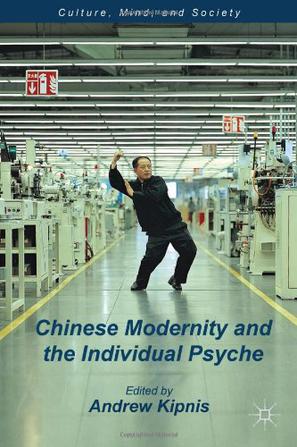
Chinese Modernity and the Individual Psyche
Rapid industrialization, urbanization, and marketization have led to startling social changes in reform-era China. Mindful of the many forms of social theory that relate modernity to individualism, this volume addresses social and cultural change through the lens of psychological anthropology. The contributors explore Chinese modernity through the psychosocial contradictions experienced by artists, dancers, and poets; by mothers and daughters; by school children and migrant workers; the mentally ill, and others. As a whole, the book provides a disturbing but hopeful portrait of Chinese society, an opportunity to rethink the significance of the concept of modernity, and a vivid reminder of the enmeshment of individual psyches in their wider social and cultural environments. -
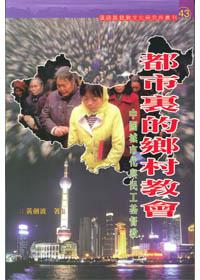
都市裡的鄉村教會
大量鄉村基督徒進入城市務工是中國城市化進程的相伴現象之一。其中一些鄉村基督徒進入城市後參加教會,形成以民工群體為主的小組、團契和教會,逐漸產生了一種位於城鄉之間的信徒和教會形態。由於它處於都市或都市邊緣,其信仰形態與鄉村教會更為接近,作者稱之為「都市裡的鄉村教會」。這種城鄉新移民被稱為「民工」,這種新型的教會也被稱為「民工教會」。 當下中外學界對於城市化及民工群體的研究頗為豐富。不過,已有的研究比較集中在民工的生存和發展。然而,對於他們的宗教或靈性,及其信仰與日常工作和生活之關聯卻少有涉及。本書的出版正是要補足此缺席的議題。 -
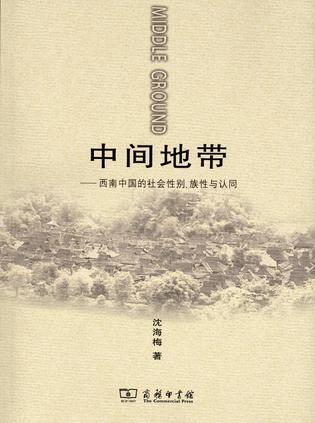
中间地带
《中间地带》可以称作中国西南地区少数民族的社会性别民族志。本书在基于西双版纳曼底傣泐人、楚雄直苴罗罗泼人和洱海区域大理盆地白族人的人类学田野调查研究基础上,通过展现西南三个族群在语言、身体、服饰、婚姻、仪式、信仰诸方面所传达出的社会性别与族性之间丰富的维度,解读了各族群在民族国家整治过程中实践民族身份认同的不同社会情境,深入剖析了通过性别权利关系作用于认同实践二呈现出的社会性别差异。本书摒弃了以往研究中的文化中心主义对边疆的刻板定位,将“中间地带”作为洞察少数民族族性的社会空间,把土著、移民、帝国以及民族国家之间的关系置于社会过程中加以考察,在此基础上重新理解不同族群见发生文化接触和展开互动的情形以及内部边界在这些社会中存在的意义。